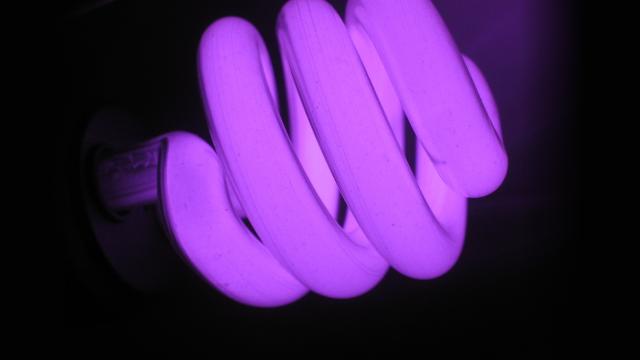You may already know that silicon chips are etched using deep ultraviolet lithography, but you might not realise that we’ve reached the limit of what can be done using normal UV rays. Fortunately a new kind of light, called Extreme Ultraviolet, is about to land in the hands of chip manufacturers — and it should help your processor keep up with Moore’s Law.
Currently, chips are etched with deep ultraviolet light which has a wavelength of 193 nanometers. But with production geometries shrinking — right down to 28nm in some cases — to squeeze more on to chips, manufacturers have hit a brick wall.
Enter Extreme ultraviolet: high-energy ultraviolet radiation with wavelengths between 124 and 10 nm. It’s been discussed as a theoretical new means of chip manufacturing for a few years now because its shorter wavelengths offer more precision. But it’s always been hampered by one major problem: it’s been difficult to create an EUV light strong enough. Without sufficient intensities it’s either impossible or painfully slow to etch chips.
Now, though, foundry technology developer ASML ha announced a commercial prototype EUV device which will be producing light with 80 watts of power this year and — hopefully — 250 in 2014. At those powers it should be possible to etch 125 wafers per hour. That’s a way off Intel’s demand — it recently stated that it needs EUV to produce 1000watts to hit its production demands — but it’s enough for ASML to be confident that Extreme Ultraviolet could be a Real Thing by some time in 2015.
And in honestly, it better had. Because by 2015, chip manufacturers are hoping to manufacturing geometries of just 10nm — which will be all but impossible to achieve accurately using normal UV light. Time to get extreme. [Hot Hardware via Slashdot]
Image by brx0 under Creative Commons licence
